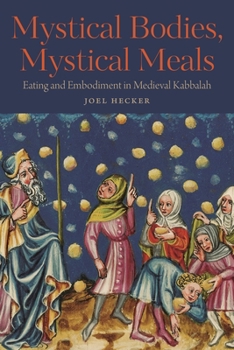Mystical Bodies, Mystical Meals: Eating and Embodiment in Medieval Kabbalah
(Part of the Raphael Patai Series in Jewish Folklore and Anthropology Series)
Select Format
Select Condition 
Book Overview
Mystical eating practices and experiences in Kabbalah.
Focusing on the Jewish mystical literature of late thirteenth-century Spain, author Joel Hecker analyzes how the Zohar and other esoteric literature represent mystical attainment in their homilies about food. What emerges is not only consideration of eating practices but, more broadly, the effects such practices and experiences have on the bodies of practitioners.
Drawing on anthropology, sociology, ritual studies, and gender theory, Hecker shows that Kabbalists conceived the internal topography of the body as itself mystical. Nourishment imagery is used throughout Kabbalistic texts as a metaphor signifying the flow of divine blessing from the upper worlds to the lower, from masculine to feminine, and from Israel to the Godhead. The body's spiritual continuity allows for unions between mystics and their food, table, chair, and wine and is exemplified in the practices and experiences surrounding the consumption of food. This continuity is also applicable to other aspects of embodiment, such as union with other people. Bringing this entire spectrum into focus, Hecker ultimately considers how Kabbalists use the oral cavity and stomach, and even the emotions associated with festive meals, to produce the soul of the mystical saint.





